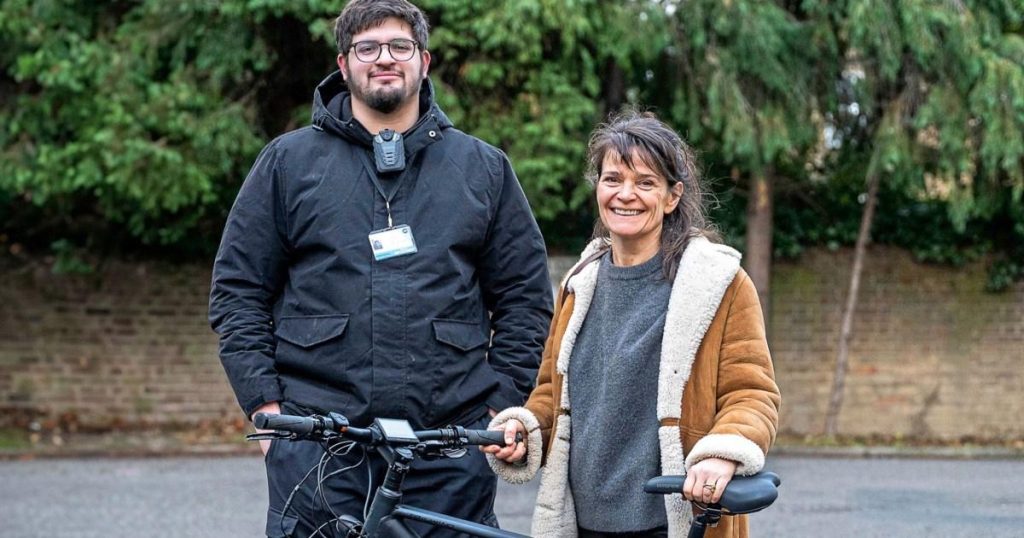Bilal Ali, a 25-year-old father, has carved a unique niche for himself in London: he’s a bike recovery agent. Navigating the city and its outskirts, Bilal dedicates his time to tracking down stolen bicycles and returning them to their rightful owners. His work takes him to a variety of locations, from residential homes and tower blocks to traveler camps and lock-ups, wherever stolen bikes might be stashed. Equipped with a specialized high-tech scanner, Bilal pursues bikes fitted with GPS trackers, often electric models valued at £1,000 or more. His work addresses a significant problem: the UK sees over 150,000 bike thefts annually, with police often unable to dedicate resources to investigating these crimes. Bilal’s recovery service boasts an impressive 80% success rate, providing a vital service for cyclists who have lost their valued possessions.
Bilal’s approach emphasizes diplomacy and patience over confrontation. He prioritizes retrieving the bike, often employing a strategy of allowing those in possession of the stolen property to save face. Rather than accusations and threats, Bilal opts for a calm demeanor and courteous interaction, even offering assistance in constructing a narrative where the individual can present themselves as a victim. This tactic, he explains, frequently leads to the successful and peaceful handover of the stolen bike. He stresses the importance of avoiding aggressive behavior and language, emphasizing a thoughtful and adaptable approach, especially in sensitive environments like traveler camps. Bilal’s experience has taught him to prioritize his safety and to recognize when to disengage from a potentially dangerous situation, recognizing that personal safety outweighs the recovery of a single bike.
While Bilal’s work often involves navigating complex social situations, he maintains a clear focus on his objective: retrieving the stolen bicycle. He explicitly states his disinterest in involving law enforcement or getting anyone into legal trouble. His role is not that of a police officer, but rather a mediator facilitating the return of stolen property. This non-confrontational approach, he believes, is crucial to his success. While he acknowledges occasional instances of minor physical altercations, such as a tug-of-war over a bike, he emphasizes the importance of de-escalation and avoiding unnecessary risks. This pragmatic approach allows him to operate effectively in diverse environments and maintain a relatively safe working dynamic.
Bilal’s work, however, is not without its challenges. Some cases prove particularly elusive, requiring persistent effort and strategic thinking. He describes one ongoing pursuit, a nine-month-long game of cat and mouse involving a bike that intermittently transmits its location when charged. Despite the relatively low value of this particular bike, the extended pursuit has become a personal challenge for Bilal. The intermittent signals and the constant need to catch up present a significant hurdle, yet he remains determined to eventually recover the bike, highlighting his dedication and tenacity in pursuing even the most challenging cases. This perseverance underscores his commitment to his clients and the satisfaction he derives from reuniting them with their stolen property.
The successful recovery of a stolen bike carries immense significance for both the owner and Bilal. One such case involved Viny Bodhani, whose £2,000 electric bike was stolen. Through a combination of CCTV footage from the shop where the theft occurred, Viny’s foresight in installing a discreet GPS tracker, and Bilal’s expertise with his scanner, the bike was recovered in just five hours. This swift recovery underscores the effectiveness of Bilal’s methods and the importance of integrating technology in combating bike theft. The relief and gratitude expressed by owners upon the return of their bikes are a powerful motivator for Bilal, reinforcing the value of his work.
Ultimately, Bilal finds immense satisfaction in helping Londoners recover their stolen bicycles. He views his work as a service to the community, actively disrupting the cycle of theft and returning valuable possessions to their rightful owners. The feeling of outsmarting thieves and returning stolen goods provides a strong sense of purpose. The positive impact he has on individuals like Viny Bodhani, who experienced the distress of theft and the joy of recovery, fuels his dedication. Bilal’s role as a bike recovery agent is not just a job; it’s a mission driven by a desire to help and a commitment to making a tangible difference in the lives of London cyclists.


